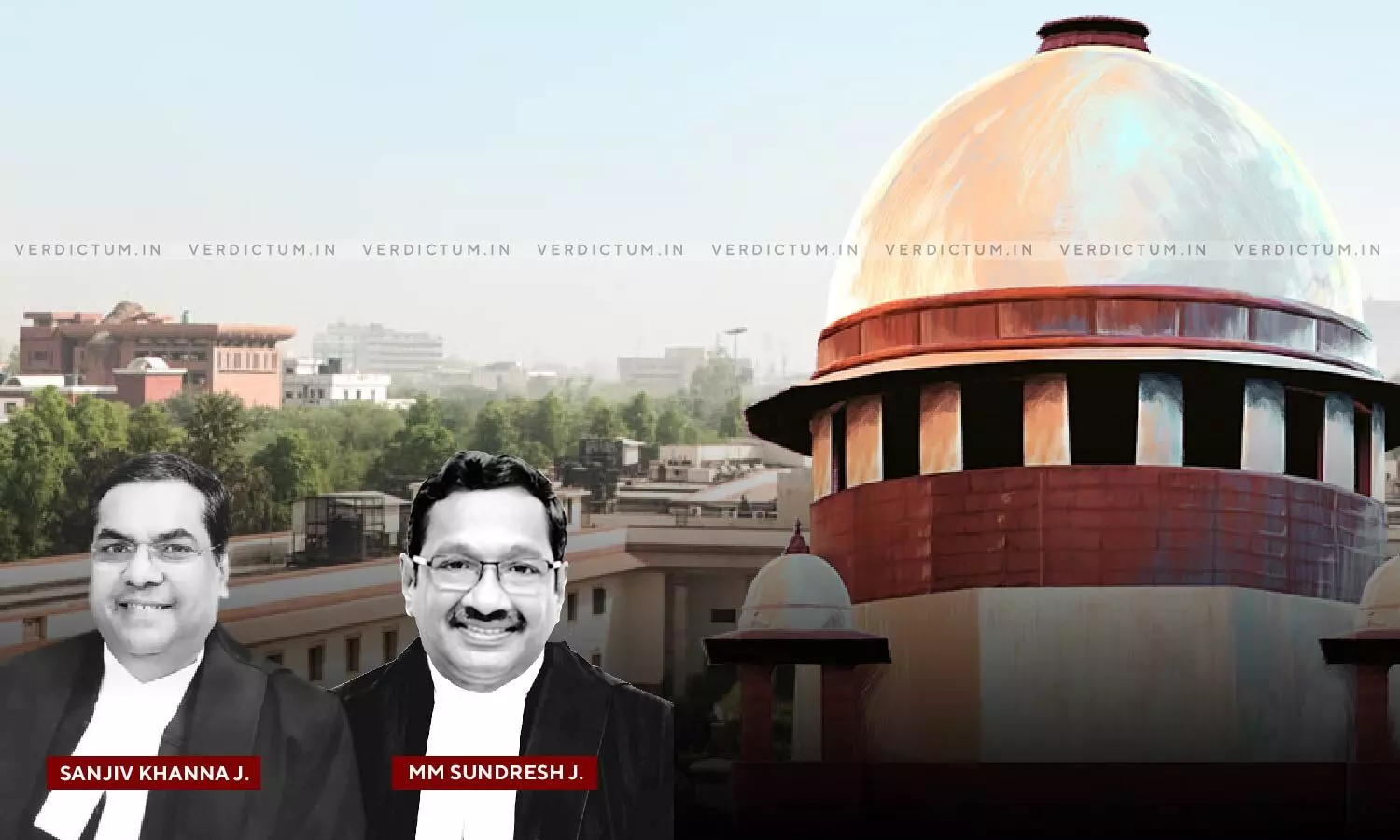
Don't Adopt Hyper-Technical Approach, No Need To Continue Agony Of Mere Status Without Living Together: SC While Granting Divorce
 |
|The Supreme Court held that the Trial Court and High Court should avoid adopting a hyper-technical and pedantic approach when assessing a divorce decree.
The Court allowed a Civil Appeal filed by the Appellant/wife challenging the High Court's order. The Trial Court had rejected the divorce Petition filed by the Appellant on the ground of cruelty, which the High Court affirmed.
“The Trial Court and the High Court adopted a hyper-technical and pedantic approach in declining the decree of divorce. It is not as if the respondent Husband is willing to live with the appellant–Wife. The allegations made by him against her are as serious as the allegations made by her against him. Both the parties have moved away and settled in their respective lives. There is no need to continue the agony of a mere status without them living together”, the Bench comprising Justice Sanjiv Khanna and Justice M.M. Sundresh observed.
Advocate Dushyant Parashar appeared for the Appellant, and Advocate Shantanu Sagar appeared for the Respondent.
The Appellant (wife) filed a complaint under Section 498A of the Indian Penal Code (IPC) and Sections 3 and 4 of the Dowry Prohibition Act, 1961 (DPA). The couple got married in 2002, but they started experiencing difficulties after the birth of their child. The Respondent/husband questioned the Appellant's character and accused her of fleeing the marital home. He also demanded a medical examination of the Appellant, alleging that she was living in adultery and had given birth to a child during the period of non-cohabitation. The Trial Court dismissed the Petition, and the High Court affirmed the same. Aggrieved by the orders, the Appellant filed before the Supreme Court.
The Court noted that the Hindu Marriage Act, 1955 permits divorce on several grounds, including cruelty, desertion, and adultery. The Amendment Act, 1976 made it even easier for couples to end their marriages. Additionally, the Act ensures that estranged wives are protected so they are not left vulnerable after a divorce. The Court specified that, while applying the grounds for divorce, the courts must consider the particular circumstances of each case, such as the social setting, educational qualifications, financial status, employment, caste, community, age, and place of the spouses. Since the Act does not define the word " cruelty, " the courts have the authority to interpret it liberally and contextually.
The Court relied on the case of Vishwanath Agrawal v. Sarla Vishwanath Agrawal, [(2012) 7 SCC 288] and noted that objective standards cannot solely define cruelty and must also consider subjective factors. The Court acknowledged that what may be perceived as cruel for a woman in a particular circumstance may not be the same for a man. As a result, a more adaptable approach is required when a wife seeks a divorce.
The Court emphasised that Section 13(1) of the Act, 1955, which outlines the requirements for granting a divorce, used to be based on the fault theory and upholding the sanctity of marriage. However, the Court observed that with a more liberal attitude, the grounds for separation have become more extensive. Nonetheless, women still encounter societal and economic difficulties when trying to obtain a divorce.
The Bench noted, “Historically, the law of divorce was predominantly built on a conservative canvas based on the fault theory. Preservation of marital sanctity from a societal perspective was considered a prevailing factor. With the adoption of a libertarian attitude, the grounds for separation or dissolution of marriage have been construed with latitudinarianism... Courts must adopt a holistic approach and endeavor to secure some measure of socio-economic independence, considering the situation, case and persons involved. An empathetic and contextual construction of the facts may be adopted, to avert the possibilities of perpetuating trauma - mental and sometimes even physical - on the vulnerable party. It is needless to say that the courts will be guided by the principles of equity and may consider”.
The Court emphasized that a holistic approach is necessary to consider the situation, case, and individuals involved to avoid further trauma, both mental and physical, for the vulnerable party. The courts should balance the rights of both parties and follow the principles of equity. The Bench noted that when it comes to the burden of proof in a divorce petition, the Petitioner holds the burden, but the degree of probability is not beyond a reasonable doubt but rather a preponderance of probability. In a divorce petition, the Bench noted that the burden of proof is not the same as an offence, as it is a civil remedy.
The Bench noted that section 23(1)2 of the Act, 1955 speaks of condonation of cruelty by the petitioner in a divorce petition filed on the ground of cruelty, but it should be viewed in the context of the marital relationship between a man and a woman. The section is a word of caution to prevent abuse and misuse of law. The Court noted that a wife's silence cannot be interpreted as passive consent due to her vulnerable position. Section 23(2)3 of the Act, 1955 mandates that the court attempt reconciliation between the parties before granting any relief under the Act. The Bench placed reliance on the case of Sivasankaran v. Santhimeenal [2021 (10) SCALE 477].
The Court referred to the case of Thrity Hoshie Dolikuka v. Hoshiam Shavaksha Dolikuka, [(1982) 2 SCC 544] and reiterated that the home, which should be a happy place, becomes a source of misery and agony for the partners and their children when they fight. Children suffer irreparable harm, especially when the couple remains unconcerned about the impact on them.
Accordingly, the Court granted a decree of divorce and set aside the impugned judgment of the Trial Court.
Cause Title: Smt. Roopa Soni v Kamalnarayan Soni (2023 INSC 814)